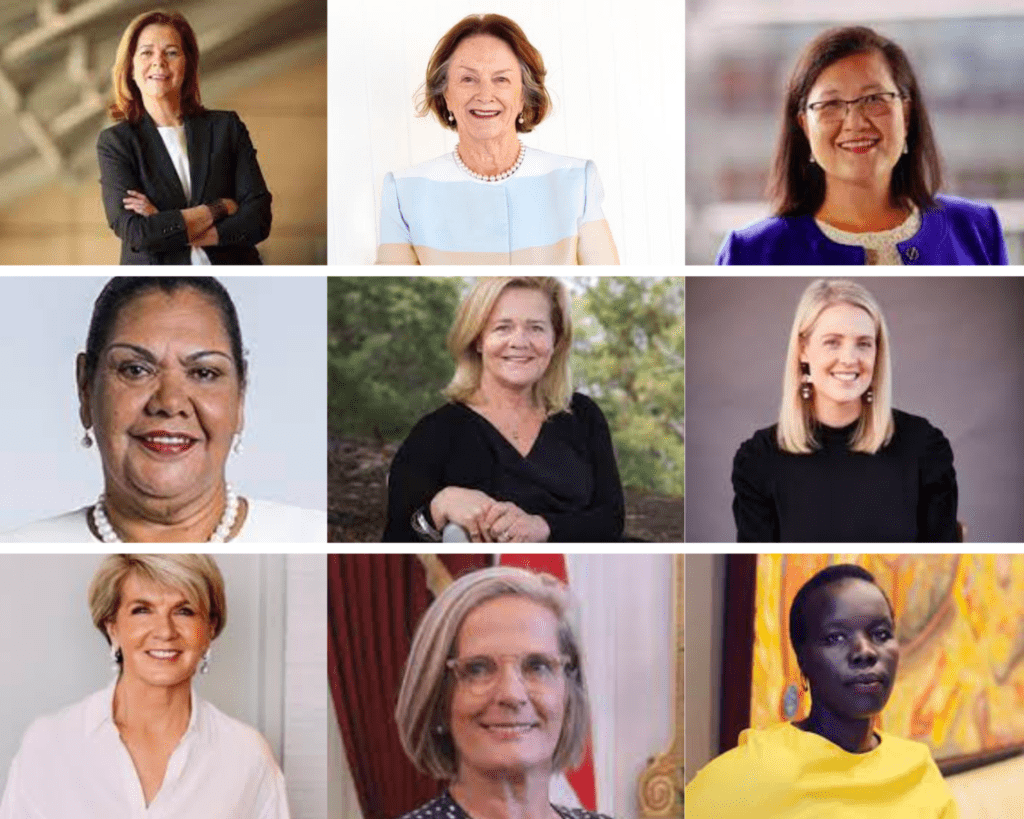Australia was once a respectable contender in the realm of proactively closing the gap between men and women. Not anymore. The pace of change has slowed. While other countries have spent the last decade steadily closing the gender gap, ours is widening.
We have fallen behind in every major dimension measured by the World Economic Forum’s Global Gender Gap Index, except for educational attainment for women, where Australia has maintained its number 1 ranking.
Compared to 2006 levels, in 2021 Australia fell from 12th to 70th in economic participation and opportunity, from 57th to 99th in health and survival, and from 32nd to 54th in political empowerment.
Despite being fantastically educated and skilled, women in Australia remain underpaid, undervalued, underemployed and unsafe in ways men aren’t. For First Nations women, culturally and linguistically diverse women, queer women and women with disability the statistics are far worse and the pace of change even more glacial.
It is not inexplicable. It simply reflects that meaningful reform to improve the lives of women has been overlooked for at least a decade. Australia’s policy settings perpetuate men as breadwinners and women as caregivers. That remains the default cultural expectation in homes and workplaces around the country – and the cost women pay as a result is substantial.
Women remain underrepresented in politics, business, and leadership, and the gender pay gap is widening.
Paid parental leave is inadequate and inequitable, and puts mothers and fathers on starkly divergent paths from the moment of conception even when both parents aspire to sharing the care. After a baby arrives, dads start to earn and work more than ever before. For mums it’s the reverse and it cannot accurately be described as their “choice”.
In February 2021, 120,000 Australians who wanted to work, didn’t because they cannot access suitable or affordable childcare. They don’t get counted as unemployed but they’re locked out of work and the benefits of being able to earn a living.
Early childhood education and care is prohibitively expensive, making it harder for women to work at all or in the way they might otherwise choose. It’s inaccessible and inflexible meaning too many children miss out. Early educators, a cohort of chronically undervalued and underpaid working women, like nurses, aged care workers and disability support workers, are exhausted. They’re leaving their chosen vocations in droves because the critically important work they undertake – that we are all dependent upon – isn’t valued or paid fairly.
Women over 55 are the fastest growing demographic of Australians experiencing homelessness and they have been for too long. Poverty, housing insecurity and financial stress are the steep price too many women in Australia have to pay for spending their lives caring for others. More than one woman a week is killed at the hands of a former or current partner and police attend more than 5000 domestic violence incidents every week. One in three women experience sexual harassment in the workplace.
None of this is acceptable. And talking won’t change it.
In 2022, we can – and should – expect better. It is time for the Federal Government to invest in the changes necessary to make Australia a nation in which all women and children can live and work freely and safely and reach their full potential.
Women will not stumble upon equity by accident; it will be achieved through reform. Reform is not beyond us but it takes leadership and commitment that has eluded us for too long. I am a signatory to a new petition from the Women For Progress group convened by Nicola Forrest AO and I invite you to join us in demanding more for our mothers, sisters, daughters, nieces, aunties, friends.
We are calling for ten changes that would dramatically pick up the pace of change for women and children and they are:
New measures to increase female workforce participation, to enable parents to bond with their children and to ensure our next generation are supported during their critical early years:
- A national commitment to develop an evidence-based early learning system that is universal, accessible and high quality, delivered by securely employed and properly paid educators and coordinated from infancy through to primary school.
- Government funded paid parental leave at the minimum wage for 26 weeks, shared between partners and phased up to 52 weeks by 2030.
New measures to increase women’s safety and financial security including:
- Changing the National Employment Standards to include a minimum 10 days per year of paid family and domestic violence leave for all employees.
- Investment in crisis housing for older women and people experiencing family and domestic violence (including those on temporary visas).
- Implementing in full all 55 recommendations from the Federal Sex Discrimination Commissioner’s Respect@Work report.
New measures to eliminate the pay gap for all Australians, particularly women employed in the female dominated care sectors:
- Changing the Fair Work Act to include gender equality as an express object, remove the need for a ‘male comparator’ and establish a new Fair Work Commission gender equality panel.
Better assistance for women in poverty, including:
- Changes to income supports which disproportionally impact women, single parents and children based on the principle of ‘do no further harm’.
New measures to address inequality in leadership, including:
- Changing the Workplace Gender Equality Act to require public reporting by all organisations with more than 20 employees, on all indicators including gender pay gap, cultural background and progress towards women in leadership targets.
- Committing to targets and public reporting on women in leadership in the political and public service sector from 2023.
- Supporting and funding all seven recommendations of the Wiyi Yani U Thangani Report.
Add your name to the petition and join us in demanding better. The time for talking is done. Anything less than implementing the above changes will be insufficient.


